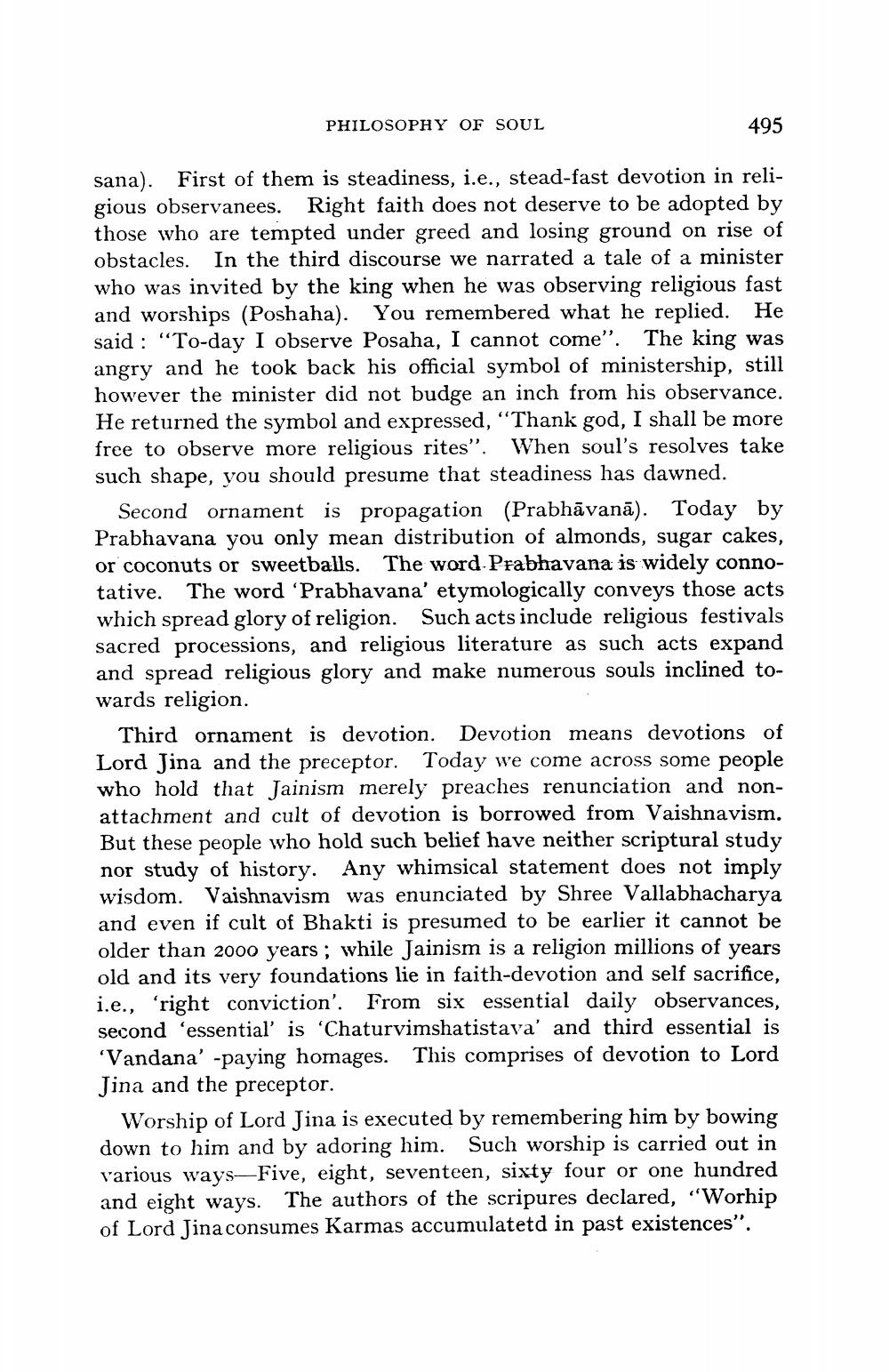________________
PHILOSOPHY OF SOUL
495
sana). First of them is steadiness, i.e., stead-fast devotion in religious observanees. Right faith does not deserve to be adopted by those who are tempted under greed and losing ground on rise of obstacles. In the third discourse we narrated a tale of a minister who was invited by the king when he was observing religious fast and worships (Poshaha). You remembered what he replied. He said: "To-day I observe Posaha, I cannot come". The king was angry and he took back his official symbol of ministership, still however the minister did not budge an inch from his observance. He returned the symbol and expressed, "Thank god, I shall be more free to observe more religious rites". When soul's resolves take such shape, you should presume that steadiness has dawned.
Second ornament is propagation (Prabhāvanā). Today by Prabhavana you only mean distribution of almonds, sugar cakes, or coconuts or sweetballs. The word Prabhavana is widely connotative. The word 'Prabhavana' etymologically conveys those acts which spread glory of religion. Such acts include religious festivals sacred processions, and religious literature as such acts expand and spread religious glory and make numerous souls inclined towards religion.
Third ornament is devotion. Devotion means devotions of Lord Jina and the preceptor. Today we come across some people who hold that Jainism merely preaches renunciation and nonattachment and cult of devotion is borrowed from Vaishnavism. But these people who hold such belief have neither scriptural study nor study of history. Any whimsical statement does not imply wisdom. Vaishnavism was enunciated by Shree Vallabhacharya and even if cult of Bhakti is presumed to be earlier it cannot be older than 2000 years; while Jainism is a religion millions of years old and its very foundations lie in faith-devotion and self sacrifice, i.e., 'right conviction'. From six essential daily observances, second 'essential' is 'Chaturvimshatistava' and third essential is 'Vandana' -paying homages. This comprises of devotion to Lord Jina and the preceptor.
Worship of Lord Jina is executed by remembering him by bowing down to him and by adoring him. Such worship is carried out in various ways-Five, eight, seventeen, sixty four or one hundred and eight ways. The authors of the scripures declared, "Worhip of Lord Jina consumes Karmas accumulatetd in past existences".




